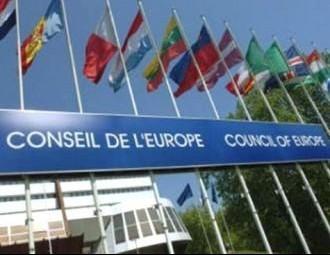Elena Tonkacheva: Council of Europe has to be careful and persistent working with Belarus

Different spheres of cooperation between Belarus and the Council of Europe should be reformed by strengthening the role of Belarusan civil society in them.
It was reported to the EuroBelarus Information Service by Elena Tonkacheva, human rights activist and the head of the Legal Transformation Centre “Lawtrend”.
She noted that cooperation of Belarus and Europe takes place within the whole number of areas; within convention mechanisms, too. “Though Belarus is not a member of the EU yet, it has assumed a number of obligations, among which are 8 conventions”, - told Elena Tonkacheva.
However, there are lots of problems and controversial questions in this sphere. First, the possibilities to monitor changes in connection with the obligations that Belarus took upon itself are extremely limited, the head of “Lawtrend” noted. “The possibilities to discuss the reasonability of accession to the CE conventions should be expended. It is a common goal of the Council of Europe, primarily through its information office and Belarusan government. In this sense CE has to remind Belarusan government that the information and conventions to be ratified should be open and accessible for public control”, - Elena Tonkacheva stated.
Belarus announced its intention to ratify a whole number of CE conventions, though, of course, our government is not very willing to sign conventions connected with human rights.
A supermarket with conventions or a value area?
In this connection CE actively discusses in what regime the cooperation with the Belarusan government should go on.
“Some people are for the accession of Belarus to any kind of convention, as it enables Belarus to go along with European standards. Another stance claims that CE is not a supermarket where you can come and choose what you like most. The Council of Europe presupposes the presence of some basic value system that deals with democracy, supremacy of law and human rights. The supporters of this stance assume that you either have to take upon yourself all the responsibilities, including those of basic value, or to put off the accession to all kinds of conventions”, - told Elena Tonkacheva. She also noted that she “is in favor of including civil society to the monitoring, evaluation and improvement of the undertaken obligations”.
Project activity requires transparency
Another direction of cooperation between Belarus the Council of Europe includes project cooperation. Now the preparation of action plan for 2014-2015 is going on. “In this sense the role of the Belarusan civil society should be increased. It’s an open secret that we got to know about the preparing Belarus-CE cooperation projects post factum, when they are approved or finished”, - told the human rights fighter.
“Besides, such projects should have the component of cooperation between the state and the civil society at national level. In this sense the Council of Europe has to be rather persistent and attentive so that to include different members of civil society, not their substitutes from the state, into such cooperation”, - highlighted Elena Tonkacheva.
Information office on a tight leash
One more sphere for cooperation of our country and the CE is topical cooperation, and for now the problem of death penalty and the introduction of the ombudsman position to Belarus will be at stake, Elena Tonkacheva made a supposition.
Besides, according to her, “now active discussion about renovation and activation of youth exchange programs and students’ possibilities to see the work of the Council of Europe is going on”.
The human rights fighter also noted that the CE expects that the work of the information office in Belarus will be developing and exemplify the interest of Belarusan authorities in development of cooperation.
“However, the possibilities of the information office are rather limited. As for now the only two people who represent it are employed after political consultation with the Belarusan government”, - Elena Tonkacheva noted.
Besides, she recalled that the actions of the information office are extended for 6 months only. “So we can easily imagine how tight the administrative leash is and realize how limited the autonomy for actions is. As any careless step, such as cooperation with human rights organizations, can be dangerous for the possibilities of further work”, - stated the head of “Lawtrend”.
Space for dialog
In this connection in would be reasonable to expect that the Council of Europe will gain more effective conditions for work, possibility for independent choice of partners for dialog, too. “On the one hand, I wait greater activity in cooperation with the civil society, - stated Elena Tonkacheva. – As the information office can really become a place for collection and retranslation of information about actual civil society members in these or that segments of social activity”.
The human rights fighter also expressed a desire that the Council of Europe will become such a place where the invitation of both the representatives of state structures and the civil society for cooperation and public events is the obligatory condition. “In such a way the area for the necessary dialog between the civil society and the state can be organized. This is the main goal that the civil society has today - to make the state hear Belarusan civil society and take its opinion into consideration. And if the direct mediation of the Council of Europe works out for this goal, than it should recognize its role in this problem”, - Elena Tonkacheva said.
-
03.01
-
07.10
-
22.09
-
17.08
-
12.08
-
30.09



























